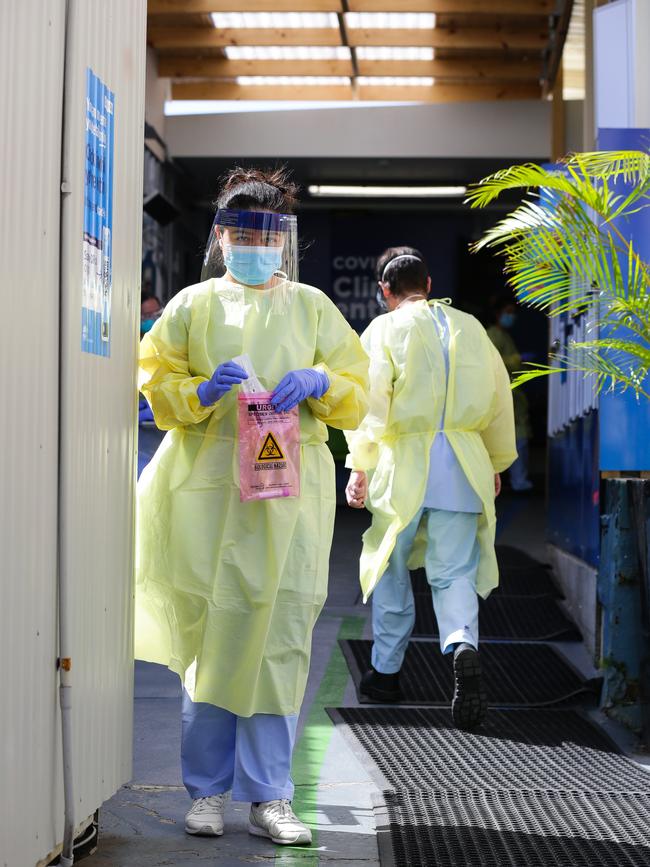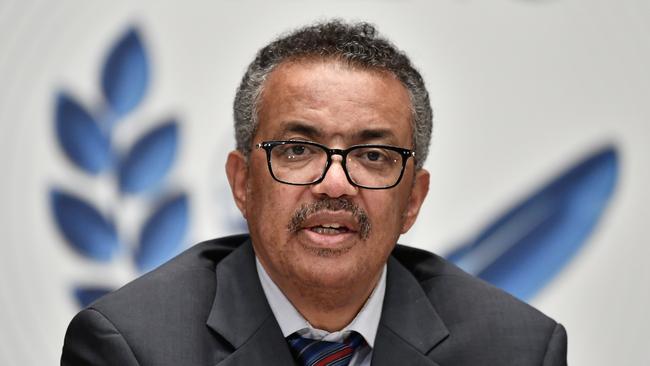Coronavirus NSW: Man dies nine months after contracting COVID-19
The long-term side effects of coronavirus are in the spotlight after a NSW man has died nine months after contracting the illness.
NSW
Don't miss out on the headlines from NSW. Followed categories will be added to My News.
One of Australia’s first cases of coronavirus has died nine months after contracting the disease, raising questions about the long-term effects of the illness.
The NSW man in his 70s who caught the disease in March has died from respiratory complications after he was diagnosed with COVID in March.
It is the first coronavirus related death since November in Australia.


Chief Medical Officer Kerry Chant said the man had recently tested negative to the virus.
“He was a household contact for a locally-acquired case and although his death is considered to be related to COVID, so that‘s based on the doctors completing a death certificate as to the cause of death, he had recently tested negative and was no longer infectious and posed no risk to the community,” Ms Chant said.
“I think this highlights the fact that sometimes the complications can be so severe that the lung damage and other complications arising from COVID can subsequently be the cause of death many months later.”
Due to patient privacy Ms Chant did not say what area the man was from in NSW, but she did confirm it was not linked to the COVID cluster.
The man’s death takes the number of deaths in NSW to 56 and across Australia to 909, with more than 1.7 million deaths recorded worldwide.
Although most people will recover from coronavirus in under two weeks, it can cause medium to long-term illness in some people, according to NSW Health.
Ongoing illnesses can include fatigue, joint pain, breathing difficulties, chest pain, a lingering cough and a change of smell or taste.
Less common and more severe symptoms include insomnia, fevers, headaches and depression.
Last week, the first Australian study of recovered COVID patients at Sydney’s St Vincent’s Hospital found up to 40 per cent of them experienced persistent symptoms including chest pain, fatigue and breathlessness.
Researchers followed 78 patients from April.
World Health Organisation director general Dr Tedros Adhanom Ghebreyesus said the long-term symptoms of COVID were “really concerning”.

“Over the past few months, I have heard first hand from people who face mid to long-term effects of COVID-19 infection,” Dr Ghebreyesus said at a conference in October.
“What’s really concerning is the vast spectrum of symptoms that fluctuate over time, often overlap and can affect any system in the body.
“From fatigue, a cough and shortness of breath, to inflammation and injury of major organs - including the lungs and heart. And even neurological and psychological effects.”
Dr Ghebreyesus said it was not clear who would experience these long-term effects.
“Though exact numbers of people experiencing the long-term effects are not yet clearly defined, post COVID-19 symptoms and complications have been reported in both non-hospitalised and hospitalised patients,” he said.
“There have been cases in women and men, both young and old. And even in children.”




